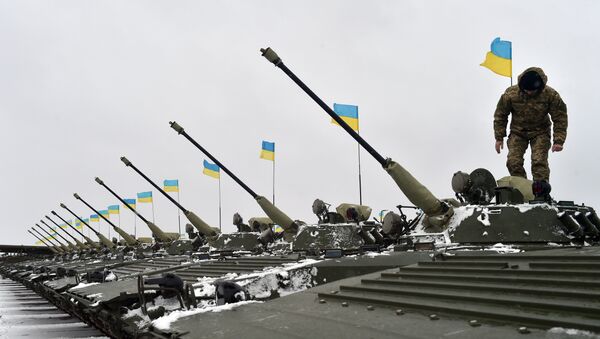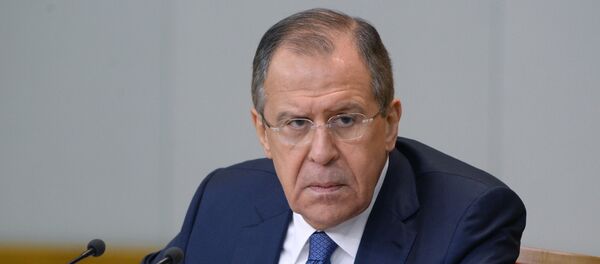"Ukraine is currently in a political and economic situation of complete disorder. But from the point of view of the Minsk agreements, the less [Kiev's leadership] tries to fulfill them, the longer sanctions will remain against Russia, and they say this freely," Lavrov said.
"Everyone understands that this is abnormal, especially the Germans and the French, who are in direct contact with the participants of the negotiations of the so-called Normandy format, where details are scrupulously reviewed [regarding] who needs to be doing what, and what has and hasn't been done in the execution of the points written in the Minsk agreements. There's already an understanding that 'playing the fool' cannot last for long," the foreign minister added.
Asked to comment on Lavrov's remarks, Philippe de Villiers, MEP, former presidential candidate and leader of the conservative eurosceptic Movement for France party told Sputnik that unfortunately, Kiev's decisions are not made independently of their political benefactors in Washington.
"It's clear that Russia is trying to fulfill the Minsk agreements, and that the Ukrainian side is trying to evade their responsibility. Why? Because if the Minsk agreements were fulfilled, the US would no longer be able to oppose Europe lifting its sanctions against Russia," the politician noted.
Categorically opposed to Europe's sanctions against Russia, the politician reiterated that in the present situation, "at a time when we in the West need Russia, sanctions are madness – they are a disgrace."
"France's authorities were mistaken when they thought that sanctions would not affect France's economy. In everyone's interests, and in particular for the sake of our farmers, it's time to put an end to these endless sanctions."
Asked whether, in time, Paris and Berlin will be able to put more pressure on Kiev to fulfill its obligations, Villiers suggested that "unfortunately, the answer to that question cannot be found in Paris or Berlin, but in Washington. The Ukrainian question is an American issue. As for myself, I would like to see Paris and Berlin stop being Washington's puppets."
At the same time, the politician emphasized that on the societal level, "more and more French people are beginning to believe that our friendship with Russia is infinitely more valuable to the future of the European continent than our relationship with America, which pushes us into unfortunate diplomatic adventurism, in Syria, for example, where we find ourselves on the wrong side. There, we should fight on the side of Assad, like the Russians. But as things are, we are on the side of Qatar and Saudi Arabia, together with Al-Qaeda; it is truly immoral."





